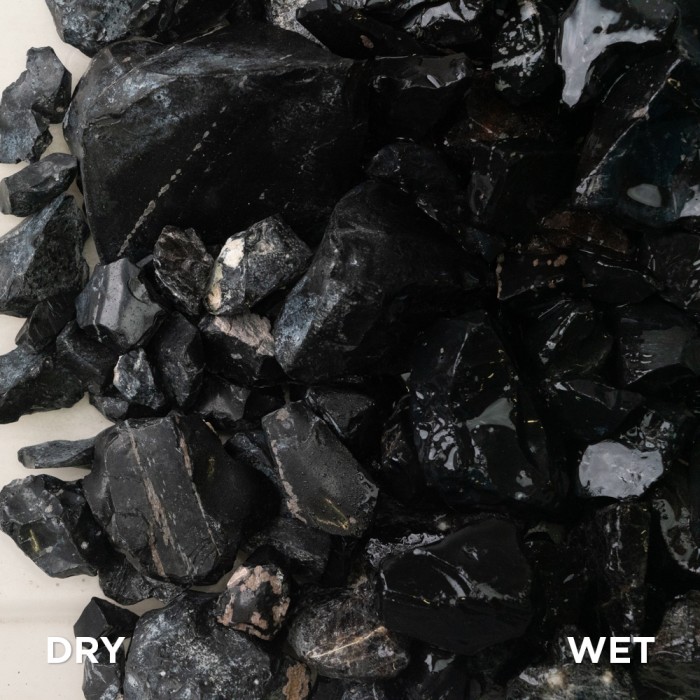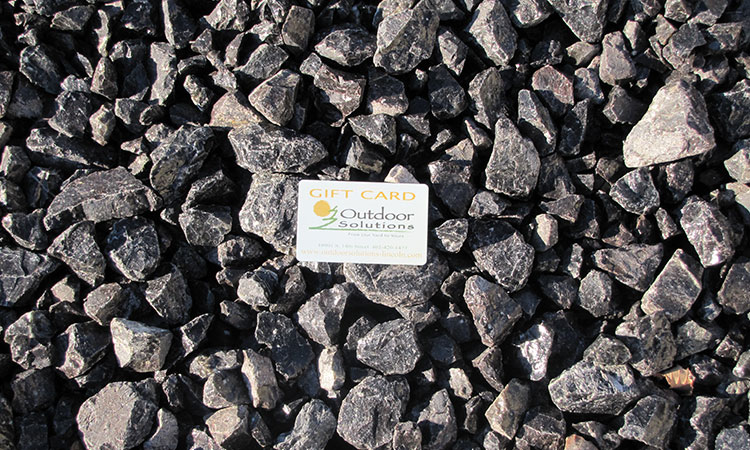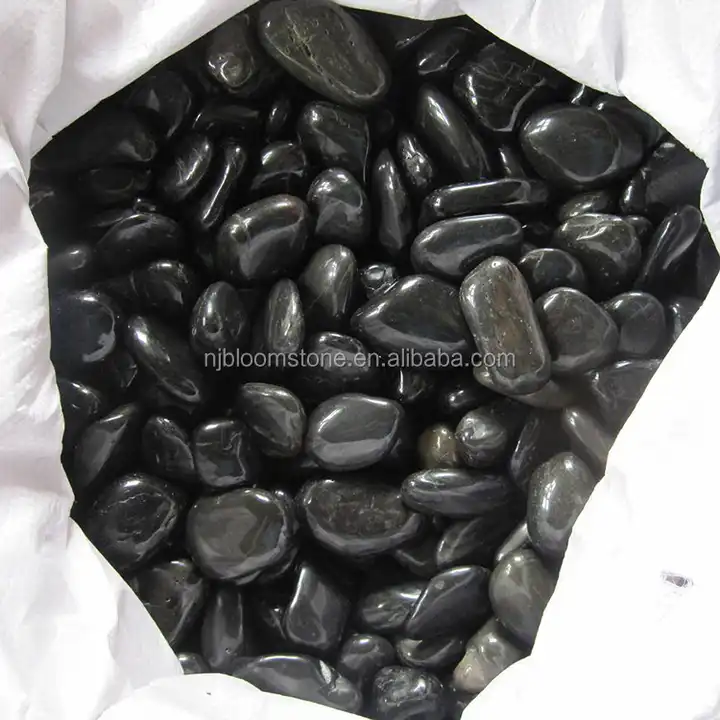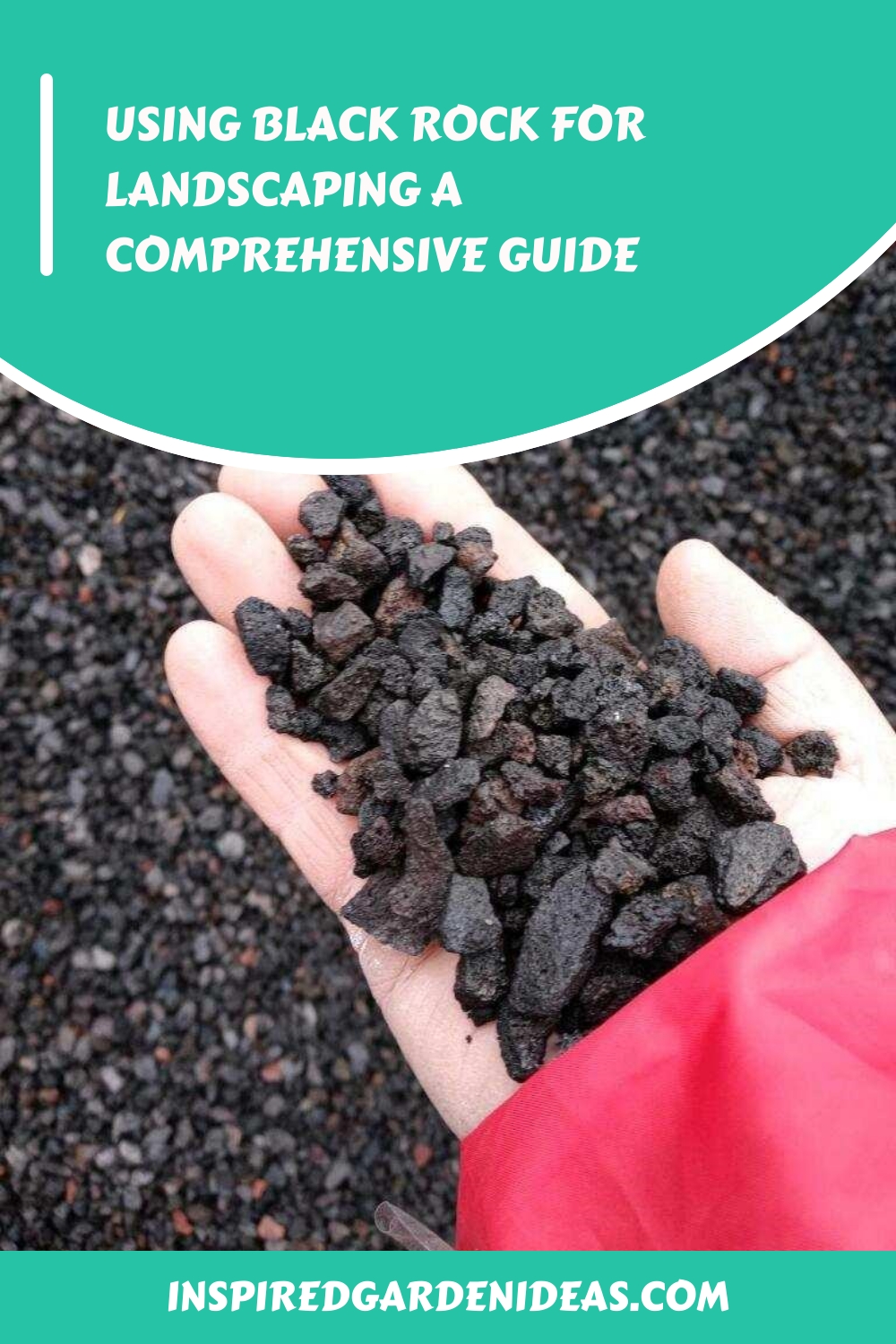Landscaping is an essential element in enhancing the curb appeal and value of any property. It involves the use of various elements such as plants, flowers, and hardscaping features to create a beautiful outdoor space. One popular hardscaping material that has gained popularity in recent years is black rock. This dark-colored stone adds a unique and modern touch to any landscape design. In this article, we will explore the different ways in which you can incorporate black rock into your landscaping and how it can elevate the overall look of your outdoor space.
1. Types of Black Rock for Landscaping

There are several types of black rock available for landscaping purposes. Each type has its unique characteristics and is suitable for specific uses. Let’s take a look at the different types of black rock you can use in your landscape design:
a) Black Lava Rock
Black lava rock, also known as basalt, is a volcanic rock formed from cooled molten lava. It is a porous and lightweight stone that is usually dark grey or black in color. This type of black rock is popularly used for ground coverings, pathways, and accents in water features due to its rough texture and natural appearance.
b) Black Granite Rock
Black granite rock is a dense and durable option for landscaping. It is a type of igneous rock that is made up of various minerals such as quartz, feldspar, and mica. Its smooth and glossy surface makes it an excellent choice for creating elegant and modern landscapes. This type of black rock is commonly used for edging, mulching, and as decorative boulders.
c) Black Slate Rock
Black slate rock is a metamorphic rock created from layers of sedimentary rocks that have undergone intense pressure and heat. It is a thin and flat stone that comes in shades of grey, black, and blue. Its unique texture and color make it a popular choice for creating striking pathways, patios, and retaining walls in landscapes.
2. Incorporating Black Rock into Your Landscaping

Now that we have explored the different types of black rock, let’s dive into how you can incorporate them into your landscaping design:
a) Pathways and Borders
One of the most common ways to use black rock in landscaping is by creating pathways and borders around your garden or yard. You can use larger pieces of black granite or slate as stepping stones or smaller pebbles of black lava rock as ground cover. Pairing black rock with lighter colored stones, such as white marble chips, creates a beautiful contrast and adds visual interest to your landscape.
b) Water Features
Black rock is an excellent material for adding depth and texture to water features such as ponds, fountains, and waterfalls. The dark color of the stone helps to create a natural-looking environment for aquatic plants and animals to thrive. Additionally, the rough texture of black lava rock provides a perfect surface for beneficial bacteria to grow, making it a functional and aesthetic addition to any water feature.
c) Mulching and Garden Beds
Using black rock as mulch in your garden beds not only helps to retain moisture and suppress weed growth but also adds a unique visual element to your landscape. The dark color of the rocks can help to highlight the vibrant colors of your plants and flowers, creating a beautiful and cohesive look. You can also use larger pieces of black granite as accents in your garden beds, adding a touch of elegance to your outdoor space.
3. Benefits of Using Black Rock in Landscaping

Apart from its aesthetic appeal, there are several benefits to using black rock in your landscaping:
- Low Maintenance: Black rock is a low-maintenance option for landscaping. It does not require regular watering or pruning, making it a practical choice for busy homeowners.
- Durable: Black rock is a durable material that can withstand extreme weather conditions and foot traffic. It is also resistant to erosion, making it a long-lasting addition to your landscape.
- Environmentally-Friendly: Since black rock is a natural material, it does not release any harmful chemicals into the environment. Additionally, using black rock as mulch can help to reduce water usage and prevent weed growth without the use of harmful pesticides.
4. Common Myths About Black Rock in Landscaping

There are many misconceptions surrounding the use of black rock in landscaping. Let’s debunk some of the common myths:
a) Black Rock Absorbs Heat
Contrary to popular belief, black rock does not absorb heat. In fact, studies have shown that black rock has similar thermal properties to lighter-colored materials, such as white rocks. This means that it does not retain more heat than other materials, making it safe to use in areas where people may walk barefoot.
b) Black Rock Causes Soil Acidification
Another common myth is that black rock causes soil acidification. While some types of black rock, such as black lava rock, may have a slightly acidic pH level, they do not significantly impact the soil’s pH. Additionally, the use of organic mulches, such as wood chips, can help to balance out any changes in pH levels caused by black rock.
FAQs

Q: Is black rock expensive?
A: The cost of black rock varies depending on the type and size you choose. However, compared to other landscaping materials, black rock is relatively affordable and can be found at most garden centers or home improvement stores.
Q: Can I use black rock in my flower beds?
A: Yes, you can use black rock as an accent or mulch in your flower beds. Its dark color can help to highlight the colors of your flowers and create a beautiful contrast.
Q: Will black rock attract pests?
A: No, black rock does not attract pests. In fact, its rough texture can help to deter pests from entering your garden beds.
Q: How often do I need to replace black rock in my landscape?
A: Black rock is a long-lasting material, and with proper maintenance, it can last for several years without needing to be replaced.
Q: Can I mix different types of black rock in my landscaping?
A: Yes, you can mix different types of black rock to create visual interest and add texture to your landscape design.
Conclusion
Incorporating black rock into your landscaping design can add a unique and modern touch to your outdoor space. With its low maintenance, durability, and aesthetic appeal, it is a practical and visually appealing option for enhancing your landscape. Whether you choose to use it as ground cover, accents, or in water features, black rock is sure to elevate the overall look of your landscape and make it stand out. So, next time you’re planning to revamp your outdoor space, consider using black rock for a stunning and functional landscape design.


